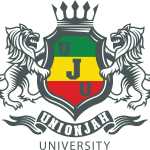Title : Haile Selassie I’s Visit to Nigeria
By UnionJah Observer | April 26, 2025
Haile Selassie I’s Visit to Nigeria: Lion Meets Eagle

Date(s) of Visit: January 1966
Background
Nigeria had gained independence from Britain in 1960, and by the mid-1960s it was Africa’s most populous country—a rising political and economic power.
Haile Selassie I’s visit came at a critical time:
- Nigeria was navigating post-independence challenges.
- There were tensions brewing that would soon erupt into the Biafra Civil War (1967–1970).
- Africa as a whole was trying to solidify unity through the Organization of African Unity (OAU).
Haile Selassie came to bless the young republic, strengthen African solidarity, and offer wisdom from Ethiopia’s long survival story.
Royal Welcome
- Nigeria rolled out one of the grandest state receptions.
- Traditional rulers like the Obas (Yoruba kings), Emirs (Northern Nigeria leaders), and chiefs honored Haile Selassie as a divine King.
- He was greeted by President Nnamdi Azikiwe and Prime Minister Sir Abubakar Tafawa Balewa.
In Lagos, thousands chanted praises, and many called him “Baba Africa” (Father of Africa).
The Emperor’s Message
Key themes during his speeches:
- National Unity: Warning Nigeria about the dangers of division and civil strife.
- African Solidarity: Urging Nigeria to play a leading role in Pan-Africanism.
- Divine Responsibility: Reminding leaders that with freedom comes a duty to uplift the people spiritually and materially.
“Your great nation must guard her unity as a precious jewel. Disunity is a luxury Africa can no longer afford.”
— Haile Selassie I, Lagos, 1966
Legacy
- Reinforced Nigeria’s role as a pillar in African affairs.
- Strengthened Ethiopia-Nigeria relations in trade, education, and defense.
- Influenced Nigerian leaders who later sought African solutions to African problems during the Biafra conflict and beyond.
Cultural Reverence
- Many Nigerians, especially in Yoruba and Igbo lands, saw him as:
- The Lion of Africa fulfilling spiritual prophecies.
- An embodiment of African royalty and spiritual power.
- A symbol of African unity in the face of external and internal challenges.
- Some even compared him to Oduduwa (Yoruba ancestral hero) and Nri kingship traditions (Igbo ancient sacred kingship).

